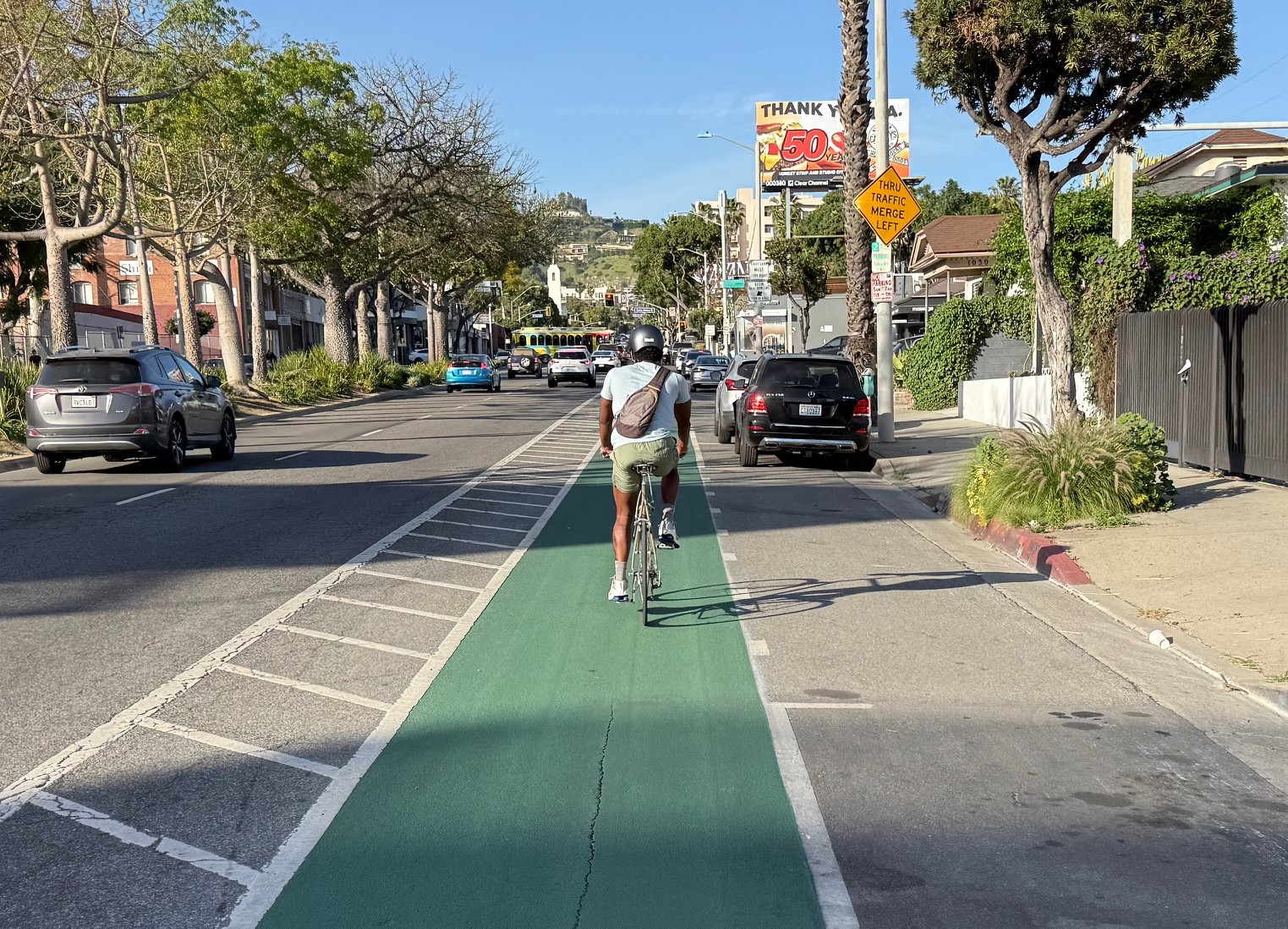This morning, I'm making use of a mass transit system while sitting at my desk at home.
That's the way the writer of today's featured post on the Streetsblog Network would see it, anyway. On network member blog New Geography,
Nicole Belson Goluboff -- a lawyer who specializes in the legal aspects
of telecommuting -- writes about legislative efforts to link funding
for "the broadband superhighway" to spending on the old-fashioned kind
of highway construction and maintenance. It's a post that's well worth
reading in full. Here's a taste:
The road to work is paved with broadband access. Photo by jessamyn via Flickr.
The
Internet has become part of our nation’s mass transit system: It is a
vehicle many people can use, all at once, to get to work, medical
appointments, schools, libraries and elsewhere.Telecommuting is one means of travel the country can no longer
afford to sideline. The nation’s next transportation funding
legislation must promote the telecommuting option...aggressively.…[Some]
lawmakers have introduced legislation specifically linking broadband
and more conventional kinds of transportation infrastructure.
Representative Anna G. Eshoo, a Democrat from California, together with
Democratic Representatives Henry A. Waxman from California, Rick
Boucher from Virginia and Edward J. Markey from Massachusetts, has
sponsored the Broadband Conduit Deployment Act, a bill that would
require new federal highway projects to include broadband conduits.
Democratic Senators Amy Klobuchar from Minnesota, Blanche L. Lincoln
from Arkansas and Mark R. Warner from Virginia have introduced
companion legislation in the Senate.…Telework enables Americans who cannot find work in their own
communities -- and cannot sell their homes -- to look for more distant
positions. It can help those still employed to lower their commuting
costs and juggle competing work and family obligations. It can help
older Americans who cannot afford to retire to continue working even
when they no longer have the stamina for daily commuting. And it can
help disabled Americans with limited mobility join or re-enter the
workforce.When Congress finalizes its new transportation
policy, it must exploit the tremendous mileage it can get from
encouraging web-based travel. Conditioning funding to state and local
governments on investment by those governments in pro-telework measures
-- and offering meaningful federal funding to promote telecommuting --
is a dual strategy that would yield a greener and leaner transportation
system.
More bright ideas from around the network: The Infrastructurist calls for climate-friendlier concrete roads; Philadelphia Bicycle News compares the $22 million cost of the Schuylkill River Trail to that of some local highway and parking projects; and The Savannah Bicycle Campaign looks at how to make a city "bicycle friendly," at least in the eyes of the League of American Bicyclists.






